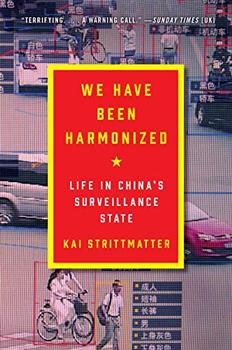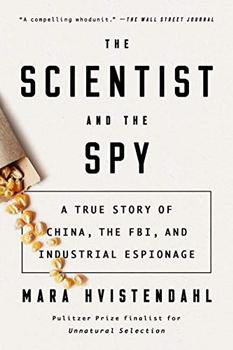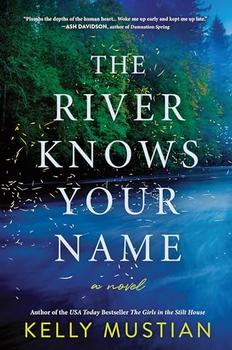Summary | Excerpt | Reviews | Beyond the book | Read-Alikes | Genres & Themes | Author Bio

A Prisoner, an SOS Letter, and the Hidden Cost of America's Cheap Goods
by Amelia PangIn 2012, an Oregon mother named Julie Keith opened up a package of Halloween decorations. The cheap foam headstones had been $5 at Kmart, too good a deal to pass up. But when she opened the box, something fell out that she wasn't expecting: an SOS letter, handwritten in broken English by the prisoner who'd made and packaged the items.
In Made in China, investigative journalist Amelia Pang pulls back the curtain on the labor camps that create the home goods we buy at Kmart, the fast fashion we buy at H&M, and a shocking number of other products besides. The book follows the life of Sun Yi, the Chinese engineer who wrote the note after finding himself a political prisoner, locked in a gulag for joining a forbidden meditation practice and campaigning for the freedom to do so. There he worked alongside petty criminals, civil rights activists, and anyone else the Chinese government decided to "reeducate," carving foam gravestones and stitching clothing for more than fifteen hours a day.
In chasing this story, journalist Amelia Pang has conducted extensive interviews with Sun Yi and the people who knew him. She also identified and interviewed others who endured similar horrors, and who inflicted them. And she traveled to China to follow falsified supply chains herself, tracking trucks from labor camps to warehouses. The story she uncovers is a call to action, urging the American consumer to ask more questions and demand more answers from the companies they patronize.
The book is fascinating and exceptionally well-written; it flies along almost at the clip of a novel and is eminently readable. It does, however, report the truly gruesome conditions within some of the forced labor camps, including sickeningly graphic descriptions of torture. The book's subject matter is important and the information Pang shares about these horrors is vital to understanding the problem, however, so hopefully most will be able to get beyond these scenes. I think Sun's story is likely to resonate with many other readers, and few will remain unaffected by the account. I highly recommend Made in China for anyone interested in the subject, and it would also make a great choice for book groups...continued
Full Review
(799 words)
This review is available to non-members for a limited time. For full access,
become a member today.
(Reviewed by Kim Kovacs).
 In her debut book, Made in China, Amelia Pang cites the Laogai Research Foundation (LRF) as a source for much of the information she presents about China's Laogai system (pronounced like loud-guy but without the "d"). The organization's website explains:
In her debut book, Made in China, Amelia Pang cites the Laogai Research Foundation (LRF) as a source for much of the information she presents about China's Laogai system (pronounced like loud-guy but without the "d"). The organization's website explains:
"The Laogai system is the Chinese network of prisons, factories, and farms designed to reform prisoners through forced labor. The Chinese government uses the Laogai to persecute political dissidents and maintain its dictatorship. Much of the treatment of Laogai prisoners violates internationally accepted norms for detention."
The LRF was founded in 1992 by Harry Wu. Born in 1937 in Shanghai, Wu lived an unremarkable life as a geologist until 1960, when his criticism of the 1956 ...
This "beyond the book" feature is available to non-members for a limited time. Join today for full access.

If you liked Made in China, try these:

by Kai Strittmatter
Published 2021
Hailed as a masterwork of reporting and analysis, and based on decades of research within China, We Have Been Harmonized, by award-winning correspondent Kai Strittmatter, offers a groundbreaking look at how the internet and high tech have allowed China to create the largest and most effective surveillance state in history.

by Mara Hvistendahl
Published 2021
A riveting true story of industrial espionage in which a Chinese-born scientist is pursued by the U.S. government for trying to steal trade secrets, by a finalist for the Pulitzer Prize in nonfiction.



At times, our own light goes out, and is rekindled by a spark from another person.
Click Here to find out who said this, as well as discovering other famous literary quotes!